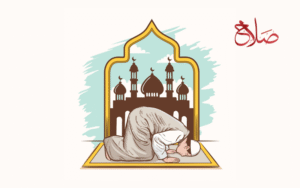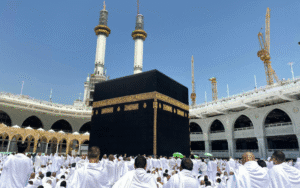Amanah in Islam: The Ultimate Guide to Trust and Islamic Ethics

A society is only considered morally sound when its members possess humane qualities and the religious knowledge to distinguish between truth and falsehood. Without these, it becomes a hunting ground for human wolves. Just as expecting safety from a wolf is futile, a righteous person finds no safety in such a society because its opportunists do not hesitate to destroy the rights and existence of others. In contrast, the foundational concept of Amanah in Islam is the bedrock of social stability. When the Messenger of Allah (ﷺ) arrived, the social system was in such a decline. Indeed, justice, humanity, and trustworthiness had vanished. For this reason, the Almighty Allah sent the final Prophet, Muhammad (ﷺ), to show the path of salvation to that collapsing society. Allah then addressed the Prophet (ﷺ), saying:
وَأَنْذِرْ عَشِيْرَتَكَ الْأَقْرَبِيْنَ
“And warn, [O Muhammad], your closest kindred.”
(Ash-Shu’ara 26:214).
Upon receiving this command, he ascended the Safa mountain and gathered the Quraysh. He then asked them, “If I were to tell you that an enemy army is preparing to attack you, would you believe me?” They all replied, “Certainly!” because they were well aware of his integrity and honesty. However, as soon as he warned them of an impending severe punishment, Abu Lahab exclaimed, “May you be destroyed! Is this why you have gathered us?” In response, Allah Himself revealed a curse upon Abu Lahab. Throughout history, people with Abu Lahab’s mentality have earned nothing but contempt. On the other hand, the fortunate ones accepted the call of the Messenger of Allah (ﷺ) and succeeded in establishing a secure and peaceful society.
Even in today’s turbulent world, the only path to survival is to accept the great trust that Allah revealed. Therefore, to save our country and nation from the current crisis, we must establish this quality of trustworthiness everywhere. In this article, we will highlight the importance and necessity of Amanah, Insha’Allah.
Defining Amanah in Islam: The Core of Trust
‘Amanah’ (الأمانة) is an Arabic word meaning trustworthiness, reliability, or security. It is the opposite of Khayanah (الخيانة), or betrayal. In essence, within the framework of Islamic Ethics, Amanah refers to every obligatory duty Allah places upon His servant. This includes obligations like Salah (prayer), Sawm (fasting), Zakat (charity), and the repayment of debts.
The Great Trust: A Responsibility for Humankind
Amanah is not merely about human transactions; rather, it is a great responsibility from the Throne of the Almighty for all of humanity. This responsibility is so immense, in fact, that the heavens, the earth, and the mountains declined to bear it. Allah says
إِنَّا عَرَضْنَا الْأَمَانَةَ عَلَى السَّمَاوَاتِ وَالْأَرْضِ وَالْجِبَالِ فَأَبَيْنَ أَنْ يَحْمِلْنَهَا وَأَشْفَقْنَ مِنْهَا وَحَمَلَهَا الْإِنْسَانُ إِنَّهُ كَانَ ظَلُوْمًا جَهُوْلاً
“Indeed, we offered the Trust to the heavens and the earth and the mountains, and they declined to bear it and feared it; but man [undertook to] bear it. Indeed, he was unjust and ignorant.”
(Al-Ahzab 33:72).
To clarify, in his commentary, Ibn Kathir (may Allah have mercy on him) explains this trust signifies obedience, the prescribed matters of Shari’ah, and all religious commandments. Ultimately, by consolidating scholarly opinions, it becomes clear that the concept of Amanah in Islam is a comprehensive responsibility. Fulfilling it brings rewards, while violating it brings severe punishment.
Humanity’s Three Categories in Upholding Trust in Islam
Based on how they fulfill this trust, people fall into three types:
- The Hypocrites (Al-Munafiqun): They outwardly fulfill the trust but lack sincerity in their hearts.
- The Polytheists (Al-Mushrikun): They reject it both openly and secretly.
- The Believers (Al-Mu’minun): They fulfill the trust with complete sincerity, both openly and secretly. (In light of Al-Ahzab 33:73).
The Scope of Amanah: Its Vast Role in Islamic Ethics
The scope of Amanah is incredibly broad; in fact, it begins with accepting Islam as a way of life and extends to every aspect of one’s existence. The practice of Amanah in Islam covers numerous fields. Here are some key areas:
- Accepting the Deen of Islam: This is the greatest trust. As Imam al-Qurtubi (may Allah have mercy on him) stated, “Amanah, in its broad sense, encompasses all the duties of the religion.”
- The Trust of Spreading the Deen: Furthermore, after the Messenger of Allah (ﷺ), Allah placed this trust upon the Ummah of Muhammad. Allah says:
You are the best nation produced [as an example] for humankind. You enjoin what is right and forbid what is wrong.” (Aal-E-Imran 3:110). Abandoning this duty, consequently, leads to societal trials and the wrath of Allah. - The Trust of Worship: Similarly, a servant owes Allah the duty to perform worship correctly. This means doing so at the right times, with tranquility, and with full concentration (Khushu’). Allah states:“Indeed, prayer has been decreed upon the believers a decree of specified times.” (An-Nisa 4:103).
- The Trust of Keeping Secrets: Moreover, a private conversation is a form of Amanah. The Messenger of Allah (ﷺ) said, “If a man speaks to another and then looks around (to ensure no one is listening), then his words are a trust.” (Jamiat-Tirmidhi, 2822; Sunan Ibn Majah, 3745).
- Confidentiality in Marital Life: The Messenger of Allah (ﷺ) identified one of the worst people in Allah’s sight on the Day of Resurrection as the one who is intimate with his wife and then discloses her secrets. (Sahih Muslim, 1437).
- Guarding the Limbs: The eyes, ears, tongue, hands, feet, and private parts are all trusts from Allah. As Allah says:“Indeed, the hearing, the sight, and the heart – about all those [one] will be questioned.” (Bani-Israil 17:36).
- Guarding Sight and Hearing: Therefore, one must keep their sight and hearing pure from all evil and indecency.
- Guarding the Tongue and Private Parts: The Prophet (ﷺ) said, “Whoever guarantees me what is between his two jaws (tongue) and what is between his two legs (private parts), I will guarantee him Paradise.” (Sahih al-Bukhari, 6474).
- Protecting Worldly Possessions: Allah the Almighty commands us to protect deposited items and assets.“Indeed, Allah commands you to render trusts to whom they are due.” (An-Nisa 4:58).
- The Trust in Allah and His Messenger’s Commands: Allah also warns the believers against betrayal. “O you who have believed, do not betray Allah and the Messenger or betray your trusts while you know [the consequence].” (Al-Anfal 8:27).
- Fulfilling Assigned Duties: Finally, the Messenger of Allah (ﷺ) guided us clearly on responsibility. He said, “Know that each of you is a shepherd and each of you is responsible for his flock.” (Sahih al-Bukhari, 7138; Sahih Muslim, 1829). This Hadith warns everyone about their duties, from leaders to laborers.
Trustworthy Leadership & Amanah in Islam: A Key to National Welfare
Responsibility and leadership are the greatest of trusts. In modern society, however, we often overlook trustworthy and capable individuals. When incompetent people assume leadership, the nation’s destruction becomes inevitable. Indeed, this is a major sign of the Day of Judgment.
Abu Huraira (may Allah be pleased with him) reported that the Prophet (ﷺ) said,
“When the trust is lost, then wait for the Hour.” When someone asked him, ‘How will the trust be lost?’ He replied, “When a matter is entrusted to an unqualified person, then wait for the Hour.”
(Sahih al-Bukhari, 6496).
He also described a time of deceit when people will believe the liar and disbelieve the truthful. They will trust the treacherous and consider the trustworthy a traitor. At that time, he explained, the ‘Ruwaybidah’ will speak. When asked, he clarified the ‘Ruwaybidah’ is
“The foolish man speaking about public affairs.”
(Musnad Ahmad, 7912; Sunan Ibn Majah, 4036).
When unqualified and corrupt individuals hold power, society inevitably suffers as injustice, corruption, and inhumane oppression spread widely. Only ideal, honest leadership rooted in Islamic ethics can save a nation from this misery.
The Importance of Amanah and the Grave Consequences of Betrayal
Upholding Trust in Islam is an essential part of faith (Iman). For this reason, the Prophet (ﷺ) forbade Abu Dharr (may Allah be pleased with him) from seeking a position of power, saying,
“O Abu Dharr, you are a weak man, and it (leadership) is a trust. On the Day of Resurrection, it will be a cause of disgrace and remorse, except for one who takes it with its due right and fulfills his responsibilities in it.”
(Sahih Muslim, 1825).
Describing the terror of the Sirat (the bridge over Hell), the Prophet (ﷺ) said,
“Then the trust and the ties of kinship will be sent, and they will stand on the right and left of the Sirat,”
meaning they will testify against the betrayer and the one who severed family ties. (Sahih Muslim, 195).
The Consequences of Khayanah (Betrayal)
Consequently, betraying a trust is a major sin. Allah says:
وَمَنْ يَغْلُلْ يَأْتِ بِمَا غَلَّ
“Whoever defrauds will bring forth what he has defrauded on the Day of Resurrection.”
(Aal-E-Imran 3:161).
The Prophet (ﷺ) highlighted the severity of misappropriating state property, warning,
“Let me not find any one of you on the Day of Resurrection with a bleating sheep on his shoulders… and he says to me, ‘O Messenger of Allah, help me!’ I will say, ‘I can do nothing for you. I have already conveyed the message to you (in the world).'”
(Sahih al-Bukhari, 3073; Sahih Muslim, 1831).
Crucially, if the betrayal involves another person’s rights, one must return it or seek forgiveness. The Prophet (ﷺ) said,
“Whoever has wronged his brother concerning his honor or anything else, let him seek his pardon today, before the Day when there will be neither Dinar nor Dirham.”
(Sahih al-Bukhari, 2449).
The Benefits of Trustworthiness (Amanah)
On the other hand, trustworthiness is a great virtue for a believer. Specifically, it brings immense blessings to both individuals and society. As Allah describes the successful believers:
وَالَّذِينَ هُمْ لِأَمَانَاتِهِمْ وَعَهْدِهِمْ رَاعُونَ… أُولَئِكَ هُمُ الْوَارِثُونَ، الَّذِينَ يَرِثُونَ الْفِرْدَوْسَ هُمْ فِيهَا خَالِدُونَ
“And they who are observant of their trusts and their covenant… Those are the inheritors who will inherit al-Firdaus (Paradise). They will abide therein eternally.”
(Al-Mu’minun 23:8-11).
The primary benefits of Amanah include:
- It perfects one’s faith and shows the beauty of Islam.
- It protects religion, life, property, honor, and dignity.
- It establishes justice, thereby ensuring people receive their due rights.
- It brings stability and peace to individuals, families, and society.
- Allah and people love a trustworthy person.
- Blessings and prosperity descend upon a society where trust prevails.
Conclusion
In conclusion, Amanah is a critical concept, and upholding it is an indispensable part of faith. Conversely, betrayal of Amanah in Islam is a sign of faithlessness, which leads to a severe punishment in the Hereafter. Therefore, we must all strive to protect our trusts. May Allah grant us the ability to fulfill our responsibilities properly and the strength to establish this core principle of Trust in Islam within our society and state. Ameen!
Frequently Asked Questions
What is Amanah in Islam?
Amanah (الأمانة) is an Arabic term meaning trust, trustworthiness, or integrity. In Islamic teachings, it refers to any duty, right, or responsibility entrusted by Allah or by people.
Why is Amanah important in Islam?
Amanah is a core part of Iman (faith). Fulfilling the trust is essential for salvation and a sign of being a successful believer, leading to Jannah (Paradise).
What is the punishment for betraying Amanah?
Betraying or violating Amanah (Khayanah) is a major sin. The betrayer faces severe disgrace and punishment on the Day of Resurrection, especially if the betrayal involves the rights of others.









